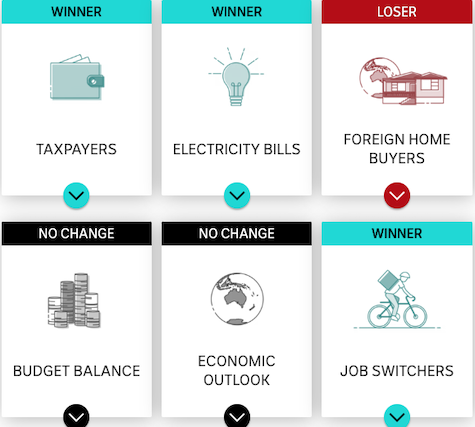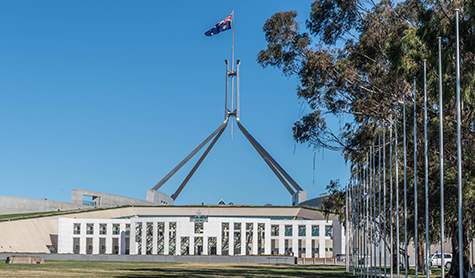What 2020 holds for low cost funds
As it goes, 2020 is unlikely to bring a period of prolonged stability that investors are hoping for.

While there are a range of views on what this year's market conditions and economic growth rate might be, it is safe to say that the plethora of voices are largely in agreement that investors should brace themselves for a lower returns for a much longer period global growth scenario.
This should come as no surprise to most, given the circumstances where trade tensions and unpredictable policymaking have weighed negatively on global demand and supply.
Amid this new age of heightened global tension and market uncertainty, we are all understandably looking for some portfolio R&R: rebalance and returns.
In such a time, the best strategy is to focus on the long-term, follow the tried and true path of diversification and minimise costs where possible. The latter, in particular, is at the heart of Vanguard's investment philosophy; simply put, the less you pay for investments, the more you keep in your pocket.
So what are the trends we are likely to see in 2020 in low-cost funds that advisers and investors alike may want to consider?
Shift from high-cost products to low-cost products
While cost is not the only factor to consider when investing, it certainly is an important one. As we believe at Vanguard, you can't control the markets but you can control the costs of your investments.
With this in mind, index investing has become a globally accepted investment approach over the last decade, and it shows no signs of slowing down. In more recent times, the focus has also shifted to lower-cost active and factor investments in the market. The traditionally high costs of active investing (be that management fees, administrative costs, commissions and the like) have significant impacts on net returns – the return that really matters to investors. Add to this the considerable evidence that traditional active products underperform the market on average after fees, it builds a compelling argument to focus on minimising costs in your investment portfolio.
Greater cost transparency may favour low-cost products
Scrutiny of the financial advice industry continues in 2020, with the Financial Adviser Standards and Ethics Authority (FASEA)'s Code of Ethics now in full effect since 1 January. The code comprises a set of principles that all financial advisers must adhere to, including a standard of client care that states clients must be advised and understanding of product cost structures and any associated fees.
This standard elaborates on the principle that advisers must act in the best interests of their clients.
While for most advisers this is nothing new, for some it may mean clients asking for more justification of higher-cost products than they previously did. This might stimulate a shift towards lower-cost investment products as investors become more cost-conscious and seek greater transparency on their potential investments.
Moreover, in the wake of the Hayne royal commission and the subsequent media coverage on practices that fail to meet client and community expectations in the adviser space, financial regulators and investors alike will probably be watching closely for any misbehaviour, particularly regarding high or dubious fees.
However, for many advisers, this is an opportune time to define a unique value proposition, demonstrate their value and strengthen client relationships, reminding clients that the value of financial advice can be more than a number on an investment statement that is higher than market benchmarks.
In times of market shocks an adviser's experience and stewardship can be particularly valuable to clients because left alone investors can make choices that impair their returns and put at risk their ability to achieve their long-term objectives.
Consistent research, including that done by Vanguard, highlight that the value of good financial advice is much broader than investment selection.
Ethical investing gaining momentum
Environmental, social and governance (ESG) issues are unsurprisingly at the forefront of investors' minds.
We know from our global experience that there are a variety of humanitarian, ethical and social concerns many people want to factor into their decision‐making process when it comes to selecting investment funds and, in recent years, we have seen an increasingly diverse set of Australian investors adopt ESG products from those who are seeking to achieve their investment objectives while also investing in line with their values. Especially with the country still reeling from the bushfire crisis, many investors both new and experienced have a wide variety of humanitarian, ethical, environmental, and social concerns that they want to see reflected in their investments.
In addition, key signals are emerging that indicate the market is becoming more conducive to ESG investing. The recent focus on the economic health of companies based on sustainable practices, especially after the global financial crisis, has further aided momentum around screened ESG investing. Regulatory change is also driving increased adoption of screened ESG products by institutional investors in some regions of the world.
It is important to note that costs can vary widely among ESG products. There are a number of low-cost indexed products available, along with some products, often active management strategies, that carry higher expense ratios. The cost of a product is often largely dependent on the firm offering the product, its agreement with the benchmark provider that constructs the index, management expenses etc. Because ESG products are predominantly actively managed, they typically involve a higher cost. ESG funds also tend to be smaller in scale and as a result, may come with a cost drag. As with conventional funds, Vanguard's advice is to always seek out low-cost, high-quality ESG products.
The stability of fixed income in a period of instability
The world has been in a stretch of geopolitical uncertainty for a while now and slowing economic growth is the new mantra. It is not surprising to see this reflected in investor sentiment – despite a booming 2019 for the Australian equity market. The tempered sentiment was best reflected in last year's boom in fixed income funds as investors sought to rebalance their portfolios in a bid to weather increasing market volatility.
With Vanguard's 2020 market and economic outlook predicting lower returns for longer, it is likely that we will continue to see an increase in the number of investors throwing their weight behind fixed income products, as a way of rebalancing and or de-risking portfolios. With the continued growth in this specific asset class it is expected that more inflows will move into globally focused fixed income products as investors look for greater diversification and possibly higher yields by tapping into the much larger pool of bond issues in the US, Europe and elsewhere.
Alternative investments
A growing number of investors are seeking diversification and returns from alternative investment options outside of the usual asset classes of shares and bonds.
While alternative investments are not a new concept, the current low-return environment is pushing investors and asset managers towards funds that have a low correlation with the stock market. Non-traditional assets include, for example, private equity, real estate and infrastructure.
Private equity is a large and growing proportion of the overall equity market as it offers investors diversification through access to a broader and uncorrelated investment universe.
It is worth noting that alternatives should not be a considered option for all investors. While many alternatives may have lower exposure to market risk, they do introduce other factors to consider when constructing a portfolio such a liquidity risk, less transparency and regulatory risk.
Generating returns from alternative investments also relies heavily on the skill of the investor or asset manager, and places an even greater focus on choosing the right investment manager to maximise after fee returns.
Developments in retirement income product design
The Australian government has been developing the Retirement Income Framework since 2016 with the intention of improving the currently under-developed retirement phase of superannuation. This framework will require superannuation funds to develop a strategy for their members that would substitute or supplement the Age Pension and ensure that they have sufficient funds to cover their life span. This could mean the creation or employment of more low-fee investment products that can provide retirees with a steady income for life while still remaining cost-effective.
In summary
Heading into 2020, financial markets most likely will remain decidedly jittery. Asset class returns will vary, as they always do, depending on many market and geopolitical factors.
Spreading your money across a range of investments is one of the best ways to reduce your exposure to market risk. This way you are not relying on the returns of a single asset class.
The right mix of asset classes or investments for you will depend on your goals, time frame and tolerance for risk.
Seeking the assistance of a professional financial adviser to help you determine the optimal asset allocation for your individual needs, combined with a low-cost investment portfolio is certainly one path towards meeting your financial goals.
Evan Reedman
Head of Product, Vanguard Investments
18 February 2020
vanguardinvestments.com.au























